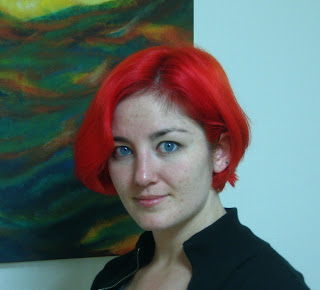Seoul is for wussies.
The books purchased in preparation for my initial months of settling have been rendered nearly useless. Unfortunately, it isn’t because I’m that shockingly intelligent, but rather that these guide books rely on a Korean familiarity with the English language.
The books are considered an asset to any English speaker in Seoul, a city the traveler is assured English is spoken or understood virtually everywhere. Seoul also being where Westerners tend to visit and live. In Gwangju however, where the majority of the population rarely even sees Westerners, English is a scarce probability.
I’m not implying that I expected it to be easy, or that I wanted it to be, but I also didn’t expect every trip to the corner market, bar, or restaurant to require a crash course in pertinent phrases or Hangeul. I feel lucky when the restaurant has a picture menu. If it doesn’t have pictures, we sound out the Hangeul and go with the most familiar of food names. I truly thank Master Cheon for lunch in Chicago. It was a much-needed introduction to Korean cuisine.
When it comes to tasks outside of food, the Lonely Planet phrase book for Korea has proven itself as a decent escort for pronunciation, vocabulary, and one-sided conversation, equipping a traveler with useful phrases to begin interactions. I’ve used it to ask questions, which are in turn answered in Korean. Do you see where I’m going with this? That’s right, I don’t know what the sweet, Ajumma is saying.
I won’t lie; it can be extremely frustrating and can definitely make me feel helpless. However, it also acts as a great catalyst to learning the language. I think of all the things I could miss if I don’t try to learn/use Korean. Progress is slow, but I know I’m learning. I purchased Kimchi today without too much confusion. Small victories.
The books are considered an asset to any English speaker in Seoul, a city the traveler is assured English is spoken or understood virtually everywhere. Seoul also being where Westerners tend to visit and live. In Gwangju however, where the majority of the population rarely even sees Westerners, English is a scarce probability.
I’m not implying that I expected it to be easy, or that I wanted it to be, but I also didn’t expect every trip to the corner market, bar, or restaurant to require a crash course in pertinent phrases or Hangeul. I feel lucky when the restaurant has a picture menu. If it doesn’t have pictures, we sound out the Hangeul and go with the most familiar of food names. I truly thank Master Cheon for lunch in Chicago. It was a much-needed introduction to Korean cuisine.
When it comes to tasks outside of food, the Lonely Planet phrase book for Korea has proven itself as a decent escort for pronunciation, vocabulary, and one-sided conversation, equipping a traveler with useful phrases to begin interactions. I’ve used it to ask questions, which are in turn answered in Korean. Do you see where I’m going with this? That’s right, I don’t know what the sweet, Ajumma is saying.
I won’t lie; it can be extremely frustrating and can definitely make me feel helpless. However, it also acts as a great catalyst to learning the language. I think of all the things I could miss if I don’t try to learn/use Korean. Progress is slow, but I know I’m learning. I purchased Kimchi today without too much confusion. Small victories.


Comments